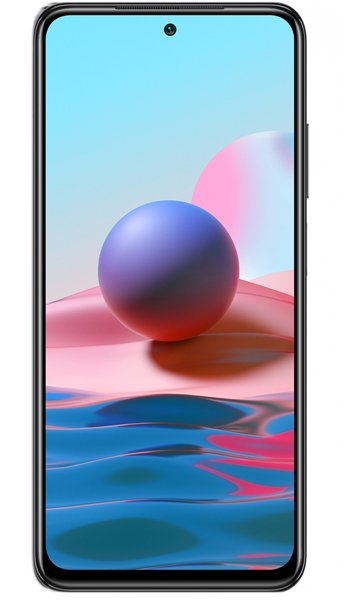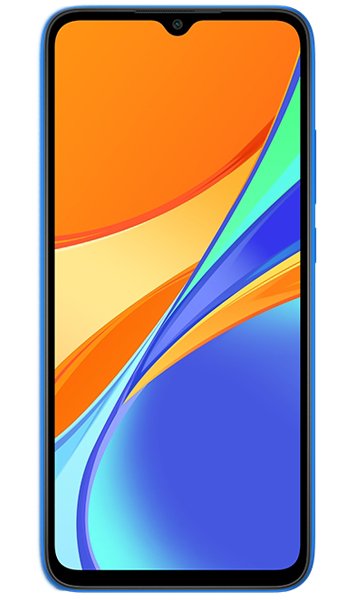Xiaomi Redmi Note 10 vs Xiaomi Redmi 9C Comparison and Differences
Smartphone 1

Xiaomi Redmi Note 10
Smartphone 2

Xiaomi Redmi 9C
Smartphone 3
Differences between Xiaomi Redmi Note 10 and Xiaomi Redmi 9C - Which to Choose?
Reasons to consider the Xiaomi Redmi Note 10:
- More powerful Qualcomm Snapdragon 678 chipset with Adreno 612 GPU.
- Higher screen resolution of 1080 x 2400 pixels with a Super AMOLED display.
- Higher pixel density of 409 PPI for a sharper display.
- Quad-camera setup with a 48 MP main sensor that supports 4K video recording.
- Faster 33W fast charging capability.
- Better resolution for the front camera at 13 MP.
- Higher AnTuTu v9 benchmark score at 277414, indicating better overall performance.
- Stereo speakers and higher-grade audio support with 24-bit/192kHz audio.
- Side-mounted Fingerprint sensor for easier access.
- Gorilla Glass 3 screen protection.
Reasons to consider the Xiaomi Redmi 9C:
- Lower price point, more budget-friendly.
- Slightly larger screen size of 6.53 inches.
- Has NFC support in some markets/regions.
- Triple camera setup with 13 MP main sensor is sufficient for basic photography needs.
- Lighter OS with Android 10, which may result in a more streamlined experience for some users.
- Fingerprint sensor located at the back which could be more natural for finger placement to some users.
When comparing both smartphones, the Xiaomi Redmi Note 10 offers a more feature-rich experience with enhanced display, camera, and performance abilities, while the Xiaomi Redmi 9C is suitable for those seeking a more budget-friendly option with essential features.
Xiaomi Redmi Note 10 or Xiaomi Redmi 9C Specs Comparison
or
 Common specs
Common specs
| Brand and model | Xiaomi Redmi Note 10 | Xiaomi Redmi 9C | |
| Rating | (+0) | (+0) | |
| Release date | 2021, March 04 | 2020, June 30 | |
| Dimensions (HxWxD) | 160.5 x 74.5 x 8.3 mm | 6.32 x 6.32 x 2.93 in | 164.9 x 77 x 9 mm | 6.49 x 6.49 x 3.03 in | |
| Weight | 178.8 g | 6.31 oz | 196 g | 6.91 oz | |
| Case | buy from Amazon | buy from Amazon | |
| Colors | Shadow Black (Onyx Gray), Frost White (Pebble White), Aqua Green (Lake Green) | Midnight Gray, Sunrise Orange, Twilight Blue | |
| Battery | 5000 mAh, Li-Po, non-removable | 5000 mAh, Non-removable Li-Po | |
| Approximate price | 170 EUR | 150 EUR | |
| Check price | from Amazon | from Amazon |
 Screen
Screen
| Technology | Super AMOLED | IPS LCD | |
| Touchscreen | capacitive touchscreen | capacitive touchscreen | |
| Display colors | 16M | 16M | |
| Screen size | 6.43" in | 6.53" in | |
| Screen area | 99.8 cm2 | 102.9 cm2 | |
| Screen format | 20:9 (height:width) | 20:9 (height:width) | |
| Screen to body ratio | 83.5% | 81.1% | |
| Screen resolution | 1080 x 2400 px | 720 x 1600 px | |
| Screen PPI /points per inch/ | 409 PPI | 269 PPI | |
| Screen protection | Corning Gorilla Glass 3 | ||
| Other specs | - 450 nits (typ) -1100 nits (peak) |
- 400 nits typ. brightness | |
| Screen protector | buy from Amazon | buy from Amazon |
 Camera and Video
Camera and Video
| Rear camera, main | 48 MP, Quad | 13 MP, Triple | |
| Camera specs | -48 MP, f/1.8, 26mm (wide), 1/2.0'', 0.8µm, PDAF -8 MP, f/2.2, 118˚ (ultrawide), 1/4.0'', 1.12µm -2 MP, f/2.4, (macro) -2 MP, f/2.4, (depth) |
-13 MP, f/2.2, 28mm (wide), 1.0µm, PDAF -2 MP, f/2.4, (macro) -2 MP, f/2.4, (depth) |
|
| Functions | LED flash, HDR, panorama | LED flash, HDR | |
| Video | 4K@30fps, 1080p@30/60fps | 1080p@30fps | |
| Front camera, selfie | 13 MP, Single | 5 MP, Single | |
| Specifications | 13 MP, f/2.5, (wide), 1/3.06'', 1.12µm | 5 MP, f/2.2, (wide), 1.12µm | |
| Functions | HDR | HDR | |
| Video | 1080p@30fps | 1080p@30fps |
 Performance
Performance
| Operating system - OS | Android 11, MIUI 12 | Android 10, MIUI 12 | |
| Chipset | - Qualcomm SDM678 Snapdragon 678 (11 nm) | - MediaTek Helio G35 (12 nm) | |
| CPU | - Octa-core (2x2.2 GHz Kryo 460 Gold & 6x1.7 GHz Kryo 460 Silver) | - Octa-core (4x2.3 GHz Cortex-A53 & 4x1.8 GHz Cortex-A53) | |
| GPU | Adreno 612 | PowerVR GE8320 | |
| External memory | microSDXC (dedicated slot) | microSDXC (dedicated slot) | |
| Internal memory | 64GB 4GB RAM, 128GB 4GB RAM, 128GB 6GB RAM | 32GB 2GB RAM, 64GB 3GB RAM |
 Benchmark
Benchmark
| Antutu 9 Total | 277414 | ||
| Antutu 8 Total | 110239 | ||
| GeekBench 6 Single Core | 670 | ||
| GeekBench 6 Multi Core | 1421 | ||
| GeekBench 6 OpenCL | 336 | ||
| GeekBench 6 Vulkan | 533 | ||
| GeekBench 5 Single Core | 516 | 138 | |
| GeekBench 5 Multi-Core | 1444 | 532 |
 Communication and Connectivity
Communication and Connectivity
| SIM card | Dual SIM (Nano-SIM, dual stand-by) | Dual SIM (Nano-SIM, dual stand-by) | |
| Network | GSM / HSPA | GSM / HSPA / LTE | |
| Bands | -2G - GSM 850 / 900 / 1800 / 1900 - SIM 1 & SIM 2 |
-2G - GSM 850 / 900 / 1800 / 1900 - SIM 1 & SIM 2 -3G - HSDPA 850 / 900 / 1700(AWS) / 1900 / 2100 -4G - LTE |
|
| Speed | HSPA 42.2/5.76 Mbps, LTE-A (CA) | HSPA 42.2/5.76 Mbps, LTE-A | |
| GPRS | Yes | Yes | |
| Edge | Yes | Yes | |
| Wi-Fi | Wi-Fi 802.11 a/b/g/n/ac, dual-band, Wi-Fi Direct, hotspot | Wi-Fi 802.11 b/g/n, Wi-Fi Direct, hotspot | |
| GPS | Yes, with A-GPS, GLONASS, BDS, GALILEO | Yes, with A-GPS, GLONASS, BDS | |
| NFC | No | Yes (market/region dependent) | |
| USB | USB Type-C 2.0 | microUSB 2.0, USB On-The-Go | |
| Bluetooth | 5.0, A2DP, LE | 5.0, A2DP, LE | |
| Harmful irradiation |
SAR - 1.09 W/kg (head) 1.09 W/kg (body) SAR EU - 0.59 W/kg (head) 0.97 W/kg (body) |
SAR - 0.73 W/kg (head) 0.52 W/kg (body) SAR EU - 0.35 W/kg (head) 0.78 W/kg (body) |
 Music and Audio
Music and Audio
| Radio | FM radio, recording | FM radio | |
| Headphone jack | Yes | Yes | |
| Others | - 24-bit/192kHz audio |
 Other features
Other features
| Sensors | - Fingerprint (side-mounted), accelerometer, gyro, proximity, compass , Infrared port | - Fingerprint (rear-mounted), accelerometer, proximity , Infrared port | |
| Other extras |
- Fast charging 33W, 50% in 25 min, 100% in 74 min - IP53, dust and splash protection (market/region dependent) |
- 10W |
Reviews and Opinions on Xiaomi Redmi Note 10 and Xiaomi Redmi 9C
If you had to recommend one of these phones to a friend, which one would it be and why? Share your arguments using the Add Opinion button!
